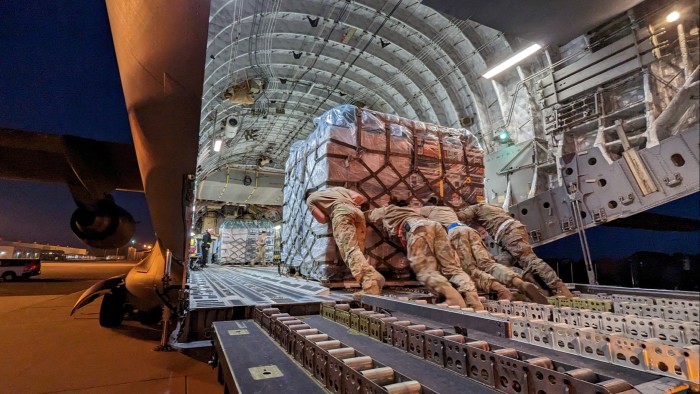Unlock the White House Watch newsletter for free
Your guide to what the 2024 US election means for Washington and the world
A majority of American voters believe most US foreign aid never reaches people in need, a survey has found, underlining the difficulties of defending an agency targeted by Elon Musk’s cost-cutting task force.
A poll by Public First for the Financial Times found that almost 60 per cent of respondents agreed that funds set aside for humanitarian causes were “wasted on corruption or administration fees”. Only 12 per cent disagreed with the proposition.
The findings come as the US Agency for International Development, a $40bn agency established decades ago with missions in more than 100 countries, continues to be dismantled by Musk’s so-called Department of Government Efficiency (Doge).
The billionaire boasted soon after joining President Donald Trump’s administration that the department would be “put through the wood chipper”. His emissaries set about freezing hundreds of millions of dollars’ worth of contracts and suspending thousands of staff around the globe.
While there has been some pushback from Republicans who represent states whose farmers provide billions of dollars in food to USAID, prominent Democratic strategists have suggested their party should soft-pedal the issue, as the cuts are popular with voters.
David Axelrod, former adviser to Barack Obama, agreed the party was “walking into a trap” by defending the agency, while Rahm Emanuel, former White House chief of staff, said the fight was “not the hill I’m going to die on”.
Public First’s research confirmed that American voters take a dim view of US aid spending, while also finding that respondents grossly overestimated the amount the US spends on such programmes.
More than 20 per cent thought the US spent a fifth of its annual budget on USAID, when in fact the figure is approximately 1 per cent.
A further 20 per cent thought between 10 and 20 per cent was spent on humanitarian aid, while a similar number of people thought the US spent between 5 and 10 per cent on such programmes.
Musk has successfully used his social media platform X to highlight alleged waste at USAID, often by taking spending out of context.
In the Oval Office last week, he admitted that “some of the things that I say will be incorrect”, after being asked to justify his false claim that USAID had allocated $50mn for condoms for Palestinians in Gaza.
However, his message seems to be filtering through to US voters.
“The American public support the principles of aid but they’re just not convinced it has been used effectively,” said Carly Munnelly, the head of Public First’s US practice.
“Across the board, they tend to overestimate how much the US spends on aid, feel that other wealthy countries aren’t providing their fair share, and think too much is lost to waste and corruption.”
Although some of Doge’s efforts at USAID have been put on hold by the courts, and the Trump administration has exempted some life-saving programmes from the funding freeze, dozens of partner organisations around the world are on the verge of bankruptcy as a result of the agency’s decimation, pressure group Accountability Lab has found.
The USAID inspector-general also revealed last week that almost half a billion dollars’ worth of US-grown food and grain was spoiling at ports and warehouses due to confusion over the funding freeze. The inspector-general was subsequently fired by the Trump administration.
The distribution of more than $1bn worth of drugs donated by pharmaceutical companies and US-funded vaccines and malnutrition treatment has also been halted, according to the US non-profit Global Health Council.
Read the full article here




